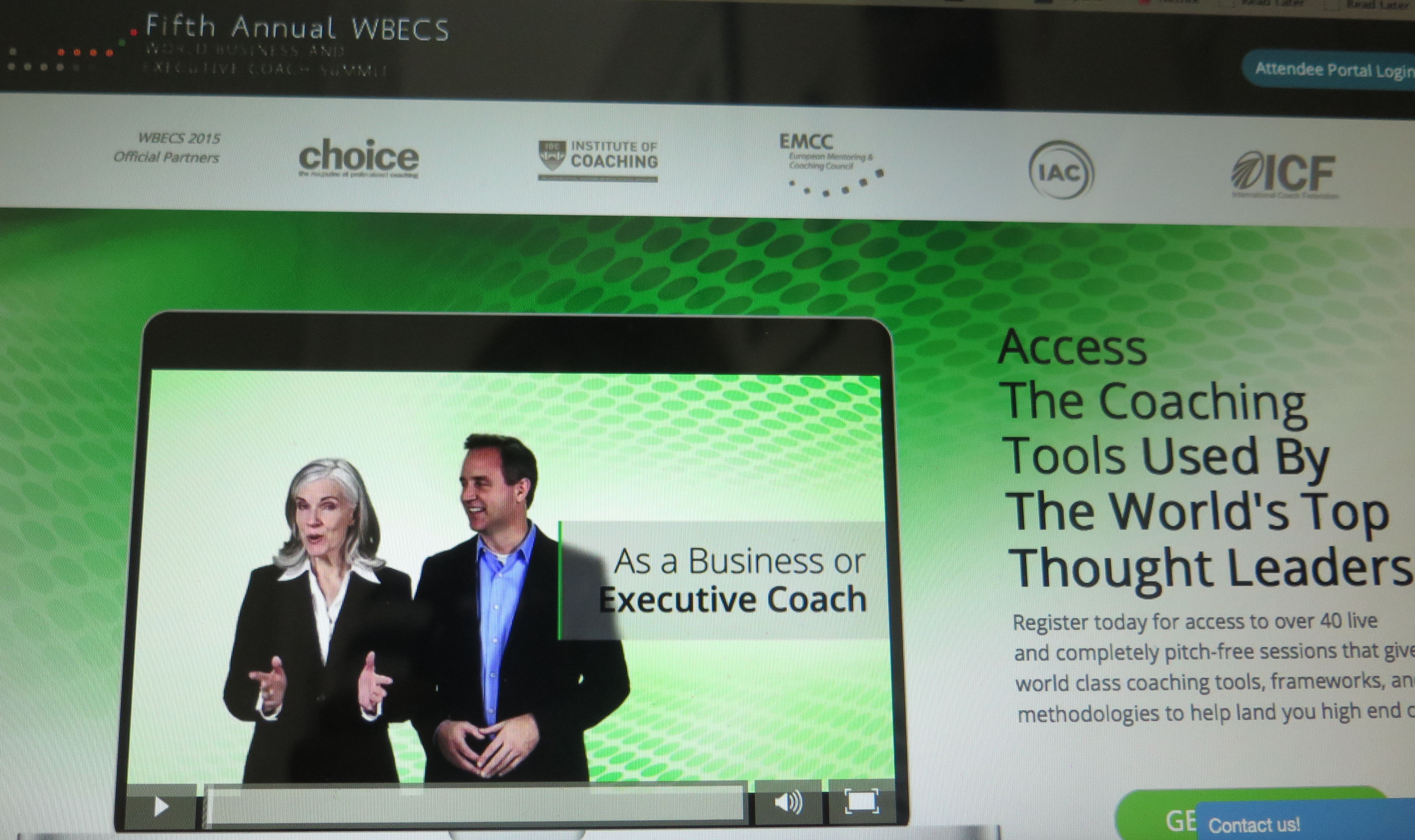“Any sufficiently advanced technology is indistinguishable from magic.”
Arthur C. Clarke
Some of my clients are analytical. Their starting point is “show me the evidence.” They are sceptical of what they consider “soft and fluffy” or “Buddhism Lite”.
Some of my clients are overwhelmed by the range of perspectives and standards of their culturally diverse teams, the demands of their clients and uncertain business conditions.
With such clients in mind, I participated in the World Business and Executive Coach Summit (WBECS). Several speakers drew on neuroscience, physiology, neurobiology and technology to support their findings. I was intrigued how this growing body of scientific research confirms the ancient wisdom of mindfulness, meditation, gratitude, compassion and intuition.
I was also fascinated by the universal principles that influence human behaviour whether the individual is so-called “left” or “right brain”. Indeed analytical types can improve cognitive functioning if they commit to some of these ancient practices.
Dr. Deborah Rozman from Quantum Intech stated “intuitive intelligence reacts faster than the mind can perceive and bypasses standard thought processes”. Further, by developing our heart intelligence we can access our intuitive discernment and problem solving capabilities to facilitate our desired outcomes.
She taught a technique using a combination of breath and focusing on appreciation, gratitude and care to create a connection between individuals. Building on this, another technique is used to create inner ease. As Rozman argued the focus on heart rhythms is not “sentimental or squishy”. The US military uses such techniques and refers to a centred state as “situational composure”. To learn more about these and other tools go to the HeartMath® Institute
Liz Hall pointed to the growing use of mindfulness techniques as an antidote to the stresses of a VUCA (volatile, uncertain, complex, ambiguous) world. We suffer mindlessness as we are bombarded by consumer choice and busyness. Liz also spoke to the benefits which include faster and more rational decisions as we become in touch with our emotions, not driven by them.
Dr David Rock explained how the brain works and cautioned that when we perceive a threat we shrink the access to our prefrontal cortex and unconscious. This reduces our field of view, our working memory and our insights. He coined the phrase “if we miss a reward we might miss lunch; if we miss a threat we might be lunch.”
He developed the SCARF® Model to illuminate what causes us to move away from vs moving towards a situation. We are more likely to respond positively when we sense we have an equal Status with others and we have some sense of Certainty, Autonomy, Relatedness and Fairness. This work is not only relevant to coaches and consultants but also to leaders.
To prepare our brain to gain insights we need to be (1) quiet, (2) inward looking, (3) slightly happy and (4) not working directly on the problem.
Margaret Moore, co-author of Organize your Mind, Organize Your Life spoke to the tyranny of technology and 24/7 connectivity and how this impairs our ability to focus. We need exercise, good sleep, hydration and nutrition for optimal brain functioning. To date 14 brain states have been identified which span thinking (prefrontal cortex) to experiencing (sensory) and high control focus (analysis) to low control focus (brain wandering). We can train our brains to be more agile and to intentionally use and move between the brain states. An organised mind is intentional, deep, agile, diverse and energized.
Steven Kotler and Jamie Wheal of the Flow Genome Project are striving to provide understanding of and access to the state of Flow “not just for the chosen few or the mystical”. Their multi-disciplinary collaboration is unlocking potential and identifies a Four Stage Cycle, not as was previously considered, an on/off state of Flow.
These stages are (1) Struggle, (2) Release, (3) Flow ad (4) Recovery. Elements of working through the cycles require cognitive self-awareness, deep even respiration and practising acceptance and gratitude.
Alpha types relish a struggle. However they run the risk of burnout as deep recovery is foreign to them. Beta types can become overwhelmed by the struggle and need to reinterpret their stories along the lines of Carol S. Dweck’s Fixed and Growth Mindsets.
I found these webinars particularly exciting as they provide me with techniques, tools, data and resources to satisfy the most sceptical of my clients and to assist them as they explore non-linear paths to uncover insights and achieve their goals.
If you would like to discuss this further leave a reply below, send a note to sylvana@sylvanacaloni.com or give me a call on +44 (0) 20 7226 3611 landline or +44 (0) 7952 068133.


Love it! I’m wondering: what if it’s the intuitive side that happens onto the science. I recall Albert Einstein;s quote:
“Imagination is more important than knowledge. For knowledge is limited to all we now know and understand, while imagination embraces the entire world, and all there ever will be to know and understand.” and, to me, more importantly Einstein’s caution: The intuitive mind is a sacred gift and the rational mind is a faithful servant. We need both science and intuition/insight ~I believe it’s about balance. Using science to ground our offers (as coach/consultant) works as we begin our work with our client ~ encouraging our clients to develop their intuitive muscles also works so we can leave our clients integrated and self-generating when we complete our engagement!
Well written, thoughtful and tool-filled article. Thank you.
Kathryn